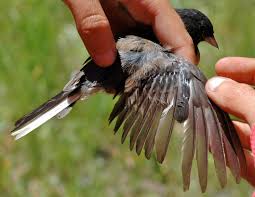
记忆方法
molt(毛脱) 脱毛
中文词源
molt 蜕羽,换毛
来自拉丁语mutare,改变,词源同mutate,mutable.后引申词义换羽,插入字母l可能是缓和语音需要,或受到mold,fault等词的影响。
英语词源
- molt (v.)
- also moult, mid-14c., mouten, of feathers, "to be shed," from Old English *mutian "to change" (in bemutian "to exchange"), from Latin mutare "to change" (see mutable). Transitive sense, of birds, "to shed feathers" is first attested 1520s. With parasitic -l-, late 16c., on model of fault, etc. Related: Molted, moulted; molting, moulting. As a noun from 1815.
权威例句
- 1. Molt - inhibiting hormone ( MIH ) is a member of CHH ( crustacean hyperglycemic hormone ) family.
- 蜕皮抑制激素 ( molt -inhibitinghormone, MIH ) 属甲壳动物高血糖激素 ( crustaceanhyperglycemichormone,CHH ) 家族.
- 2. Finches start to molt at around twelve weeks of age.
- 燕雀大约在12个星期大小的时候开始换羽毛。
- 3. This veterinary product is very effective in preventing animal molt.
- 这种兽药对于防治兽类掉毛很有效.
- 4. Like all crustaceans, krill must molt in order to grow.
- 象所有甲壳纲, 磷虾必须蜕变为了增长.
- 5. They molt carapaces , I molt old body.
- 他们换壳, 我换身体.
